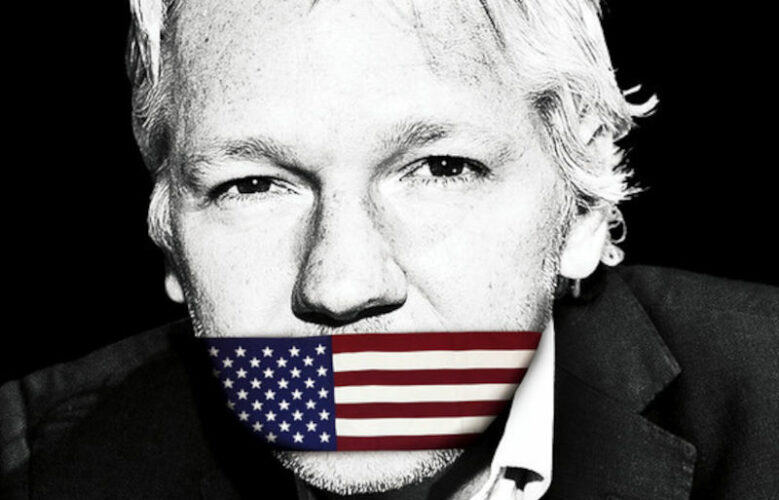Freeing Assange?
January 28, 2023
On New Years Day 2023, John Lyons, the Global Affairs Editor of the ABC, made the extraordinary prediction that within the next two months Julian Assange would be released.
Lyons gave no further details, and the Albanese government has avoided repeated requests for confirmation of this remarkable claim, maintaining the mantra that these are matters that rely on careful negotiations between states, and need to be dealt with by quiet diplomacy.
However, it is unlikely that a senior journalist for Australias national broadcaster would make such a bold and courageous prediction unless it had been leaked to him by someone he regarded as a credible source close to the government.
Who might the leaker be?
The obvious candidate is the Albanese government.
The problem with quiet diplomacy is that people can easily mistake it for no diplomacy, and call it such. The government needed to provide its critics evidence, feedback that it was pursuing the release of Assange, and the leak has more than achieved this.
Assanges family and supporters were clearly delighted with the prediction, though the more sceptical found it difficult to believe that the long persecution could be nearing its end. Assanges father, John Shipton, cited Albaneses parliamentary reply to Kooyong Independent, Monique Ryan on November 30, who asked if the government would intervene to bring Assange home. Albaneses reply was enough is enough. It is time for this matter to be brought to a conclusion.
John Shipton referenced this Albanese statement in his response:
In politics words are actions, so Prime Minister Albanese has increased the intensity of his statements and now is saying to bring this matter to a close, which is putting his reputation and the Labor governments reputation and the heft of Australia in its relationship with the US to the test. If there is a sincere relationship between Australia and the US, then Julian will be home in two months.
No contradiction of the leak came from the US side; neither from the President, nor the CIA who had initiated the Espionage Act prosecution, nor any branch of the National Security state: the silence of these lambs was remarkable.
So what has changed on the US side? They would have been consulted about the leak, so presumably they are happy that it will provide a face-saving exit.
The US legal team won the judicial battle to extradite Assange, so they may wish to quit while they are winning, with the legal precedent established for extradition under the Espionage Act, rather than facing the possibility of a successful challenge from Assanges legal team. After corralling and torturing Assange for thirteen years, the US could easily agree with Albanese that enough is enough, and Assange (and journalists everywhere) had been taught a sufficiently chilling lesson.
By releasing Assange, the Biden administration could even pose as champions of journalism and defenders of the first amendment by dropping the Espionage Act charges against Assange as The Times, The Guardian, Le Monde, Der Spiegel and El Pas (all WikiLeaks partners in publishing the material) have recently urged because of the threat it poses to a free press and to all of them. It also has the additional benefit of lavishing upon Anthony Albanese and his government an enormous public relations gift: the return of one slightly damaged Australian citizen named Julian Assange.
This year, Australia will witness an unprecedented US charm offensive. In March, former President Obama will undertake a two-city tour of Australia. In May, Biden himself will be in Sydney for the QUAD meeting to sign Australia up for the coming war with China. This will require purchasing massive quantities of extraordinarily expensive US hardware. Streets filled with angry Assange supporters would not send the necessary message of Australian support for US global ambitions.
Complimentary as he was to the Albanese government, John Shipton’s assessment of previous governments was scathing:
In my view, the acquiescence to the persecution of Julian Assange by the United Kingdom, the Swedish Government and the United States by Australia over time became complicity, he said. They were complicit because they said nothing. And as we all know, Julian Assange is an Australian citizen.
John Shipton was critical of the role of the Department of Foreign Affairs and Trade (DFAT), which also includes ASIS, and he was pleased their influence had been superseded by the Department of Prime Minister and Cabinet in the hierarchy of administration in Canberra.
I still am convinced it (the persecution) is institutional because it’s been 13 years, five prime ministers, five governments, four foreign ministers, all having the same public and private approach towards Julian Assange, John Shipton said.
It is institutional within the Department of Foreign Affairs and Trade. The institutional attitude to citizen Julian Assange has been similar to the Foreign Office, MI6, the FBI and the State Department in the United States. There’s been no significant difference in any of these institutional organisations to Julian Assange and his persecution.
Please consider the following:
https://publish.pearlsandirritations.com/pearls-irritations-needs-your-financial-support/

